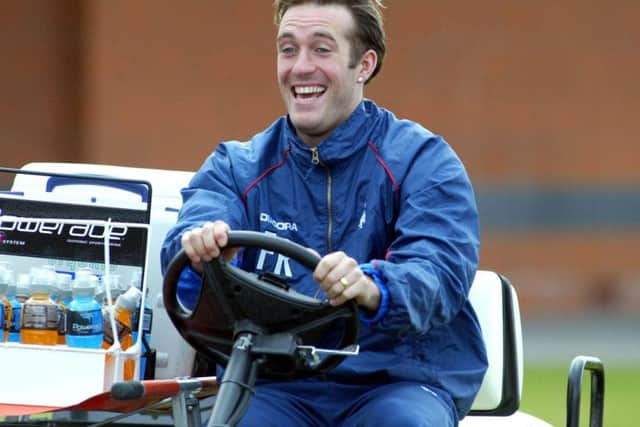'His happiest time, and probably his most hell-raising period' - Andrew Smith reflects on Fernando Ricksen's Rangers career


The florid nature of the Dutchman’s private life - and by his own admission it was ingloriously technicolour many times - equally so.
But, Ricksen, who attained a genuine nobility in how he embraced the last embers of life as his flame was extinguished by motor neuron disease, also deserves to be remembered for what he was: a footballer.
Advertisement
Hide AdAdvertisement
Hide AdHis happiest times - and probably his most hell-raising period - came with Rangers, where he won seven trophies between 2000 and 2006.


The apogee of his career resulted from him pouring his personality into his play. Arriving as a right-back, when signed by Dick Advocaat from Alkmaar, the Ibrox’s sides struggles in the 2003-04 season owed much to the hole left by the departure of captain and midfield fulcrum Barry Ferguson at the start of that campaign.
In 2004/05, Ricksen puffed out his chest and pushed his way into that central role.
His reward was captaining Rangers to a league and League Cup double, scoring nine goals from 40 appearances. His contribution earned him the PFA Player of the Year award, the honour shared with John Hartson.
A forthright individual and performer, he had little time for the delicacies of others, whether on-field foes or those encountered in his social life.
Yet, these same traits explain how he was a man who had the gumption to raise the issue of sectarianism at Rangers, and the endemic doping that existed in Russia after he moved to Zenit St Petersburg on leaving Ibrox.
He won 12 caps for Holland but would have achieved greater international recognition where it not for an over-fondness for drink, drugs and women, that he did not seek to draw a veil over in his disarmingly frank biography.
When diagnosed with MND in 2013, Ricksen was given 13 months to live.
Advertisement
Hide AdAdvertisement
Hide AdHe didn’t just show incredible courage in fighting a disease that wins every battle with its victims. His refusal to shut himself away and simply waste away out of view in order to spare any sensibilities, not only meant he was able to bring a greater public understanding of the condition.
It allowed him to show the best face of humanity when confronted by the most awful circumstances.
Scotland became a home in all manner of respects to a deeply-flawed, but ultimately admired, individual.
He spent his final months in St Andrew’s Hospice in Airdrie following his condition deteriorating after his appearance at one of his many fundraising events in the country.
The embrace he received, like Ricksen himself, was genuine.